Humanitarian workers in Myanmar race to strengthen their skills on gender equality
Date:
Author: Cecilia Truffer
Yangon, Myanmar — Although humanitarian staff may be used to activity in the field, they may not have expected to be running at a training workshop. But a Gender Relay Race was one of several interactive exercises at the Gender in Humanitarian Action (GiHA) Training-of-Trainers (ToT) Workshop held in Yangon from 23 to 26 April 2019.
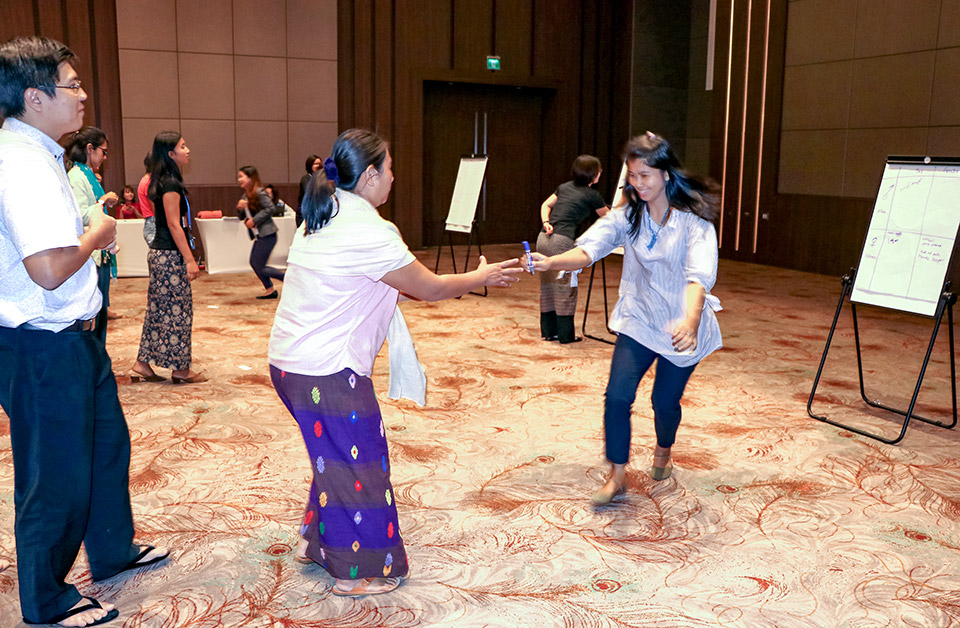
Organized by UN Women, in collaboration with the United Nations Population Fund (UNFPA) and the UN Office for the Coordination of Humanitarian Affairs (OCHA), the goal of the ToT was to meet the demand for dedicated training in this area and create a pool of GiHA trainers and human resources in Myanmar.
“Consultations with women and women’s involvement in humanitarian programming are essential since women often have different needs and know better what is needed for themselves and their children,” emphasized Hlaing Bwa, Senior Child Protection Specialist with World Vision, Yangon, adding that “the role of gender trainers is therefore essential to replicate GiHA programming at the grass-roots level.”
Bwa was one of the 37 participants nominated as gender focal points from different humanitarian sectors, clusters, working groups and geographical areas representing civil society organizations (CSOs), NGOs, INGOs, Red Cross and UN agencies who attended the GiHA ToT workshop. Through a range of participatory activities, participants learned about key gender concepts, theories of diversity and intersectionality, and the importance of GiHA for more effective humanitarian responses.
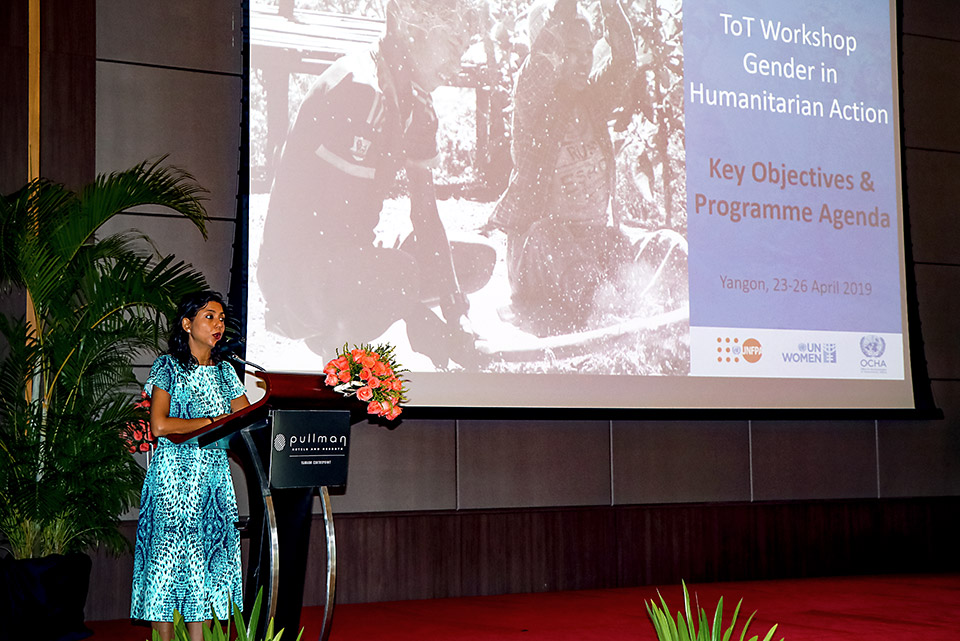
“In Myanmar, under HCT [Humanitarian Country Team] leadership, humanitarian actors have progressively increased efforts on gender mainstreaming over the past years. What we now need is dedicated and strong gender capacity, a gender profile and action plan to be able to take forward these commitments through a robust implementation effort,” highlighted Smriti Aryal, Humanitarian Action and Resilience-Building Regional Adviser for the UN Women Regional Office for Asia and the Pacific, in her opening remarks at the ToT.
Participants got an overview of humanitarian architecture, gender mainstreaming and the applicability of gender equality concepts to the humanitarian legal framework as well as within the programme cycle.
“While I was already aware of basic gender and gender mainstreaming concepts before this workshop, this training has enabled me to gain a more in-depth theoretical and practical understanding of these concepts and tools, which makes me confident about conducting GiHA trainings myself in the future,” said Julie Nge, Humanitarian Affairs Specialist with OCHA, Sittwe.
Participants familiarized themselves with tools to strengthen gender analysis in Myanmar, such as the new Gender with Age Marker, and the importance of collecting sex-, age- and diversity-disaggregated data. They also learned about gender-based violence (GBV) and Protection Against Sexual Exploitation and Abuse (PSEA) concepts and case studies.
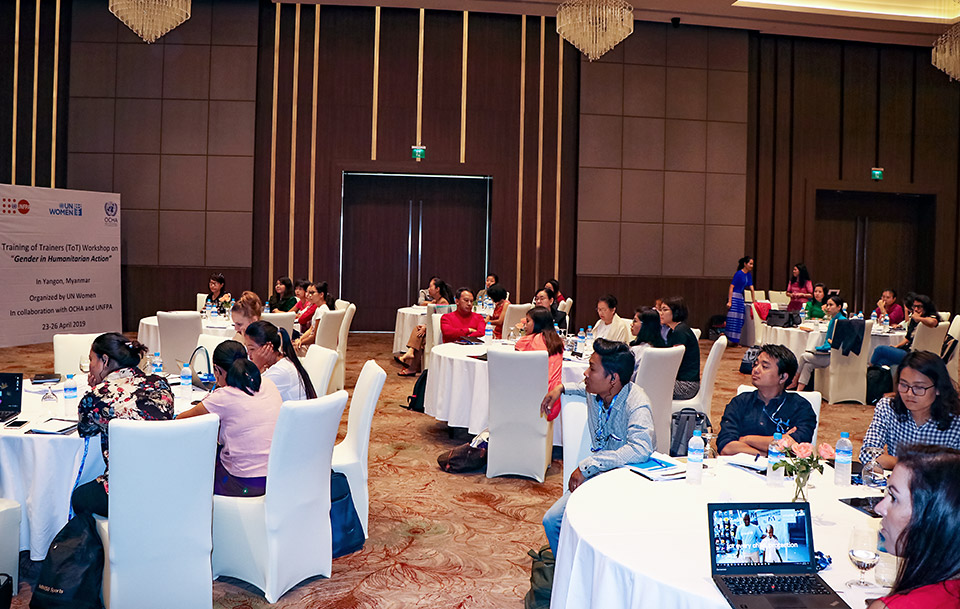
A panel discussion on the role of CSOs in promoting GiHA in Myanmar stressed the importance of including CSOs in humanitarian action – namely women and LGBTIQ rights organizations and networks – while highlighting the barriers they still face due to a lack of existing mechanisms for their engagement in humanitarian decision-making. There has also been little investment in enhancing their capacities, financing their work with communities and protecting the spaces in which they operate.
“There is a certain level of involvement by the LGBTIQ community in rights advocacy at the national level,” said Nicki Rangoon, Spokesperson with the National Transgender People Alliance of Myanmar, who was one of the three panelists. “Yet, these advocacy efforts need to trickle down more to the grass-roots level and LGBTIQ and other marginalized groups need to become more involved in humanitarian programming and policymaking.”
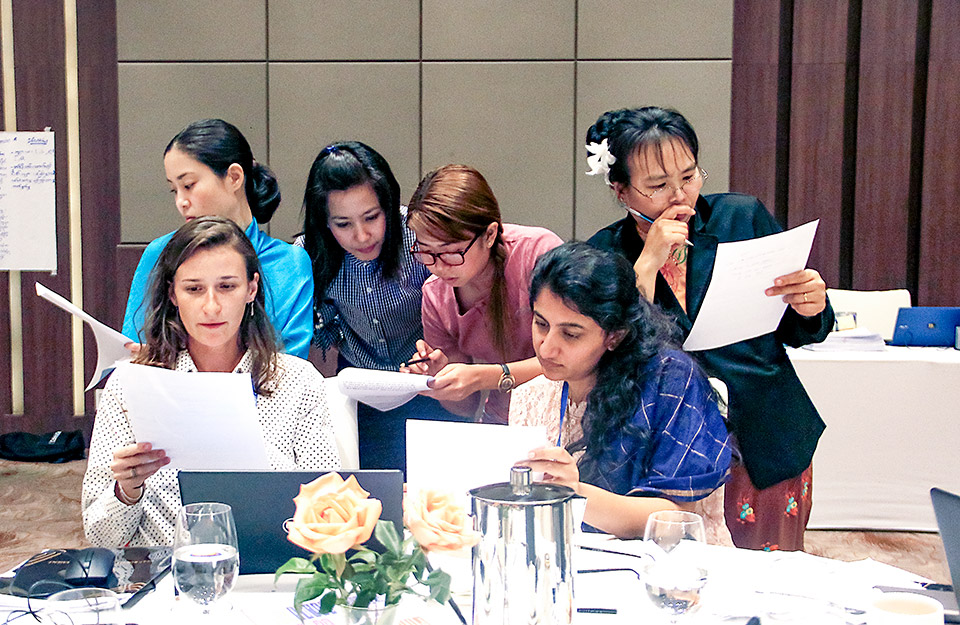
On the last day of the training, the participants got the chance to turn their acquired knowledge into practice by designing their own training modules through a group exercise.
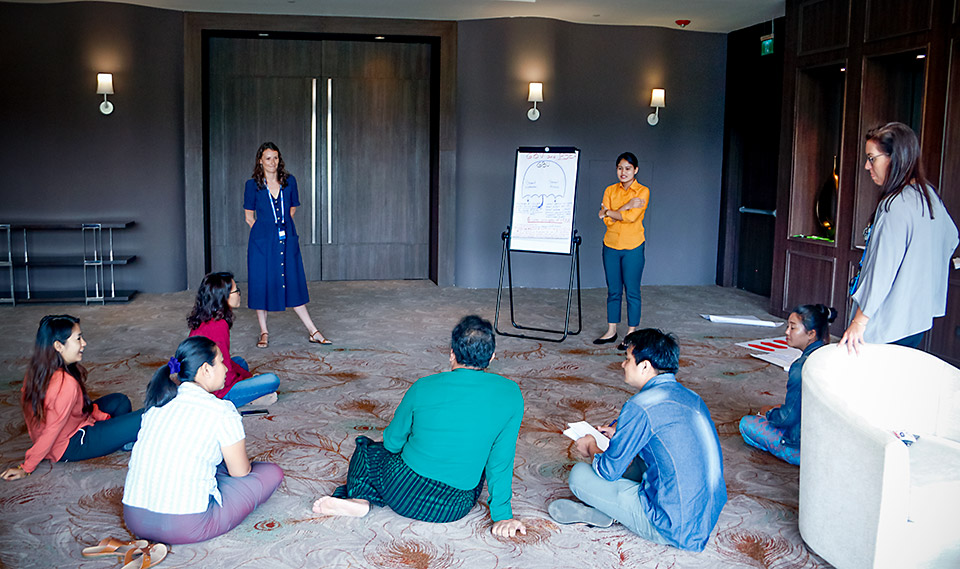
Concluding with a session on planning the way forward to promote GiHA in Myanmar, participants were split into three groups based on the geographical areas where they work, to develop action points. These included organizing trainings on GiHA with government line ministries and CSOs, creation of GiHA resource persons for humanitarian clusters, who will support in conducting future GiHA trainings at state and regional level, inter-cluster GiHA training in Central Rakhine.